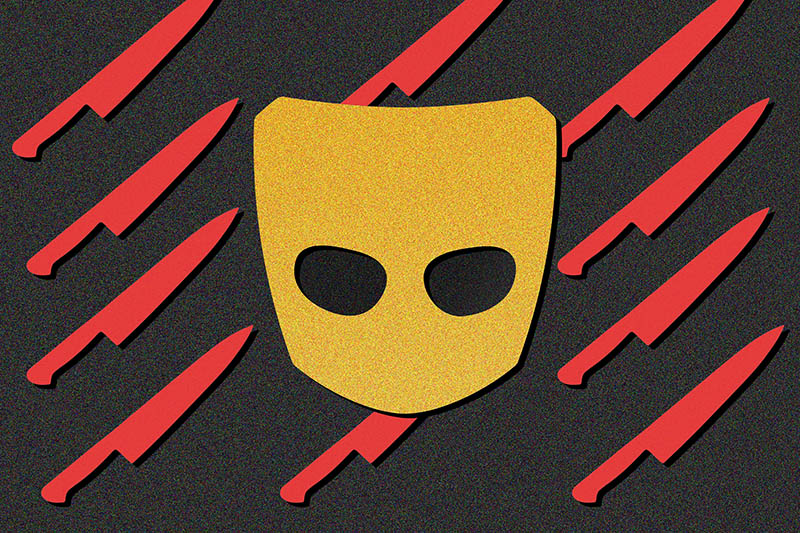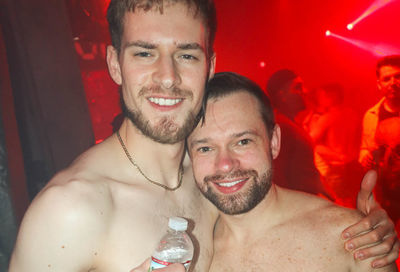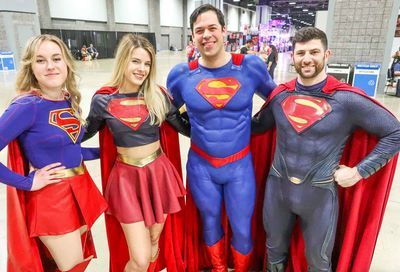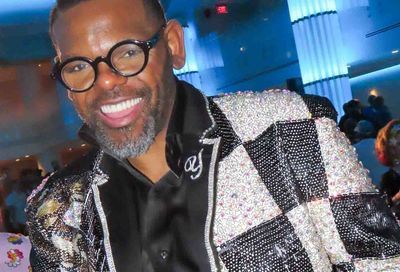Forum: Aiming for Control
Most Americans support common sense gun reforms. Our Forum panel discusses why now is the time to act.

In the wake of the recent horrific shooting in Las Vegas, we posed a question in our weekly online poll: “Should Congress strengthen gun control laws after the Vegas shooting?” The results were unsurprising. Of those who responded, 65% were in favor of stronger gun laws, 16% stood for our right to bear arms, and 18%, faced with our current political climate, chose “It doesn’t matter, Republicans will never support it.”
Gun control and the constitutional right to bear arms remains one of the most intensely debated issues of our times, yet many people seem to fall on the side of reason: If not ban guns entirely, why not at least bolster the regulations? We put a few questions to our Public Forum participants to share their opinions and insights on the matter, and virtually all of them agreed on one thing: something needs to change. And the sooner, the better. — The Editors
Are you in favor of gun control? If so, to what extent? If not, why?
Neal Racioppo: Absolutely. I think our country has offered ample evidence time and time again that a well-armed citizenry does not reduce violence or prevent crime or make us safer. A gun in the home is most likely to harm someone who lives in that home. Toddlers shoot themselves or another person about once a week in our country.
I would love for America to have gun control laws on a par with Australia’s. After a mass-shooting in 1996, Australia passed sweeping gun control laws (combined with a very successful buy-back program) and there hasn’t been a single mass shooting in that country since. I’m under no illusions that we could achieve that easily. Our congress seems unable to do what’s best for our citizens on most issues, but this appears to be the most glaring. If they can’t pass legislation that the mentally ill and people on the no-fly list should not have access to guns, what hope do we have that they could institute real gun control laws with teeth?
Greg Keltner: The NRA is always like, “They want to take your guns away.” Obama was always like, “We don’t want to take your guns away.” I’m like, “Take their guns away.” The only way we will have fewer gun deaths is by having fewer guns. Australia did it. It worked.
Zar: We already have gun control, but it should be more stringent and better enforced. There’s a line to be drawn. I think it should be closer to regulating handguns and rifles than merely prohibiting grenades and tanks.
Metropolitan Police Officer (name withheld by request): The Second Amendment permits reasonable restrictions on the ownership and possession of firearms. Our nation is debating what is “reasonable.” While there are individuals on the extremes of this issue (some support banning all firearms, while others support no restrictions), most people I know support background checks, psychological testing, registration, and a requirement that one prove competency handling a firearm before being permitted to purchase a firearm.
With regard to what types of firearms should be permitted, there is less consensus, as any firearm can cause death or serious injury. It would seem that firearms that have the capability of firing large calibers or high volumes of rounds without reloading or pulling the trigger more than once seem most likely to be those that most people feel are reasonable to restrict access to. In the end, it was impossible for our Founding Fathers to conceive of the deadly weapons humankind has devised, and it is up to us to develop a reasonable way to protect the majority of our citizens.
Ron Simmons: Yes. I believe guns should be outlawed, and, if allowed, only one gun per owner.
Charger Stone: Unfortunately most Americans are not either qualified or mentally stable enough to have access to certain weapons. What’s the true solution? I don’t think there is one. Our priorities are very askew. I can drive down to the local Walmart and buy what most Americans view as an “assault” weapon and 1,000 rounds of ammo with barely a nod, but I can’t go to CVS and buy more than one box of Sudafed just in case I’m trying to make meth.
Christopher Cunetto: Mass shooting incidents are always bewildering and horrific. The hardest thing to understand is why people choose to do this. I don’t know how to prevent these things. I’m in favor of gun control and I think it would work, but I’m not a policy expert. I do know that the world is a heartbreaking and complicated place, and that most people carry around burdens and pain that go very deep. It is easy for people to get lost in the system of things, lost in the way the world works, lost in their own feelings and experiences — strange and terrible things can happen to our minds and hearts. The only thing I can think of to do is take care of and love the people around me as deeply as possible, with the hope that doing so might bring us back to our humanity and feel fundamentally connected. Sometimes human beings can go down a dark road and eventually “break.” Maybe if we took care of one another more deeply, this would happen less.
Destiny B. Childs: I feel we have the right to protect ourselves, so owning a gun I’m completely in favor of. But we need extensive background checks, and any sort of assault weapons should be banned.
Nicholas Benton: Emphatically yes. Only guns that cannot be effectively used on other human beings should be allowed. The reasons are too obvious based on the myriad events where anti-personnel weapons have taken massive innocent human lives on our own soil.
Bil Browning: I definitely favor gun control — in fact, I would move the United States to the Australian model that banned them entirely. America has moved beyond the days of militias and needing guns to hunt. Today’s gun owners mostly buy them for “self defense” and never need them for that purpose. Instead, they or someone in their family end up killing someone by accident or in a fit of rage. We should skip half measures like banning certain types of firearms, certain components, or tightening registries and face the problem head on. The only way to end gun violence is to get rid of guns.
Rich Tafel: Yes, I think all people are in favor of regulating how guns are bought and sold. Different people have different views on where they draw a line on regulation.
John Becker: Yes, absolutely. The data is crystal clear: guns do not make us safer — in fact, owning a firearm is far more likely to harm you than to protect you. The presence of a gun in the home greatly increases the risk of domestic violence, suicide, and murder. And there is no evidence to support the gun lobby’s counterfactual claim that more guns means less crime (that “good guys with guns” stop bad guys with guns). I support strengthening gun safety laws by instituting mandatory background checks and firearm registration, banning assault weapons and high-capacity magazines, stopping the spread of concealed carry laws, and closing the “gun show loophole.”
Douglas Yeuell: Yes, I am absolutely in favor of gun control, especially when we are witness to such crimes against humanity as in Las Vegas. It seems incomprehensible to me that we would not look to control something that has the ability to rob us of the most profound aspect of being human: life.
Rev. Dyan Akousa McCray-Peters: I am in favor of gun control. My recent research on gun ownership indicated that there are nearly 400 million firearms owned in this country (private ownership and law enforcement personnel). There should be stringent background checks done on persons purchasing firearms, and bump-stock devices should be banned from purchase of private citizens.
Aaron Overman: Absolutely. There is no rational basis for a civilian to possess a military assault weapon in our country. It is tragically, pathetically easy and legal for a person to acquire a huge lethal arsenal of weapons, as we saw in Las Vegas. Guns should be licensed, their owners should hold licenses and insurance to possess them, those licences should be at least as difficult to obtain as a driver’s license, and the sale and ownership of guns should be tracked by law enforcement.
Earl Fowlkes: I favor a ban on assault rifles and bump stocks. There’s no reason why hunters and recreational gun owners would need an assault rifle.
Chris Allen: Gun control is a complicated and often emotional public policy issue to discuss and legislate. In the aftermath of a tragedy, our society comes together and unites to help the victims and their families through blood drives, generous donations, and with symbolic gestures of prayers and candle vigils; this represents the best of our society, in my opinion. However, much of this united front begins to sour when the focus turns to promoting well-intended legislation, and our growing political divide and bias inhibits goodwill, reasonable debate, and other efforts that could lead to bipartisan, meaningful legislation. Funding for more research is needed, more data needs to collected and shared across law enforcement agencies, and responsible, undistorted proposals need to be reviewed and civilly debated. These types of steps, can build toward more informed discussions in Congress and in our communities, and hopefully toward bipartisan solutions moving forward.
How important is the Second Amendment to you?
Racioppo: Extremely. Unfortunately, the most important part of the Second Amendment is glossed over by most: WELL-REGULATED. You need a license to buy a dog, or drive a car. Hell, you need a license to catch a fish. But they’ll let any butt-reaming asshole buy a gun. Background checks, training, licensing and limits on magazine size and caliber should all be regulated.
Keltner: Why is my right to own something enshrined in the constitution? “Rights” are meaningless abstractions to someone who doesn’t have enough to eat. “The right to bear arms” is a slap in the face to someone whose community is impacted by persistent gun violence.
Zar: It’s not particularly important to me. First, if people want a gun, they can get one; there’s no shortage. There are too many for the government to confiscate them all. The issue is what are the consequences for violating gun laws. Second, I think the Constitution is about muskets and militias — I don’t agree with the Supreme Court’s interpretations. Lastly, when people seem to think that they can protect themselves from the government with a cache of weapons, I think of a sentiment expressed by Shirley Chisholm in her book Unbought and Unbossed, which I will state much less eloquently: The government has soldiers, planes, tanks, and more bullets. No opposition or uprising has a reasonable shot at succeeding.
MPO: I support the Second Amendment, but I believe that the preservation of human life is also very important. In some instances, firearms can be used to preserve lives. I believe a balance can be found that honors the spirit of the Second Amendment, while also legislating reasonable restrictions that serve to mitigate the potential of death or injury as a result of people using firearms as illegal weapons. We may not be able to eliminate deaths and bodily injuries, but we can certainly decrease the number of people who die or are injured by illegal gunfire.
Simmons: I am against the Second Amendment. The Second Amendment was put in the Constitution to ensure slave States were free to organize militias to control outbreaks of slave rebellion and escapes to freedom. The whole idea becomes a farce when conservatives who claim belief in the Second Amendment call for the “original” meaning of the founding fathers in the Constitution pertaining to social issues, but don’t follow the logic that Second Amendment firearms be limited to the firearms of the founding fathers: muskets.
Stone: The Second Amendment was established at a time when you could only fire two-to-three rounds in a minute. At what point do we realize that the Second Amendment needs to be amended and updated?
Benton: It’s an anachronism in our times, much like the Electoral College, whose presence now only skews and distorts our national intent.
Browning: Private citizens can’t compete with the modern military. The days of militias are obsolete and if we stopped militarizing police units — and started following the British model of only arming cops if absolutely necessary — we could stop the arms race between criminals and cops.
Tafel: It was created for a purpose at our nation’s founding that isn’t as relevant today. However, there are people who feel that the ownership of a gun is important to them to protect them against a government that becomes a dictatorship.
Yeuell: The 2nd Amendment is important but should be subjected to interpretation for today’s day and age. There needs to be a change in viewpoint — owning or possessing guns and firearms should really be a privilege and not a right.
McCray-Peters: The wording of the Second Amendment includes Militia, which speaks to trained soldiers, which in war combat is understood, however civilians should be made to go through background checks. Statistics should be a driving force in the purchase of guns.
Overman: We’ve amended our Constitution dozens of times to eliminate injustices such as slavery, to allow women to vote. Why do we need to have any more respect for a poorly-written and easily misconstrued amendment about gun ownership than we did for the part of the Constitution that counted a black person as 3/5 of a white person? It is a dangerous anachronism that needs to be changed to reflect modern weaponry that can kill scores of people in seconds.
What do you think needs to be done to prevent mass shooting incidents such as Pulse and Las Vegas from happening in the future?
Racioppo: I don’t know. Can we all move to Australia?
Zar: I wish there was an easy answer. Get rid of guns and people can still make bombs or use vehicles to drive through crowds. As far as policy, more and better mental health care is the best suggestion I have. Ultimately, we need to have a society where people are free and happy. A world without extremist ideology or religion, where people feel loved and valued. If people have things in which they are invested and fear losing, especially relationships with other people, I think fewer people would lash out.
Simmons: Outlaw guns with the exception of hunting rifles for hunters and a single handgun for personal protection. No conceal and carry, or open carry.
Stone: To be honest, unless they do a full ban of firearms in the U.S., you are going to have mass shootings. And that will never happen. We, as a country, don’t talk about mental health, we don’t provide the resources needed to deal with mental health, we don’t treat each other with respect, we are a very selfish country. Money is more important than the life of another human being.
Childs: Again, assault weapons should be banned from regular everyday Americans. There is no need for any non military person to have an assault weapon of any kind. Handguns are fine as long as the laws are strict with owning one and background checks are harsh, stern, and thorough.
Benton: Make all anti-personnel weapons illegal and enforce such a law with rigor.
Browning: If gun ownership wasn’t legal in the United States, both the Vegas and Pulse shooters — who bought their firearms shortly before their attacks — wouldn’t have been armed. We should immediately stop selling new guns and start buying back old ones.
Tafel: I think the problem is a deep alienation in the culture that manifests itself in destructive ways. Suicide and mass shootings are on the rise. Guns, particularly automatic weapons, dramatically increase the damage that can be caused. After each mass shooting, the left has called for increased regulation, driving many on the right to successfully ease guns laws. We have a problem as a culture talking through our different values, which escalates the dangers here. Until we address the deeper issues of mental illness and recognize that it is evil in the world, we won’t be able to simply regulate this issue.
One major culprit in these mass shootings is the sensational coverage of the murders describing them in terms of the “the greatest” or “deadliest.” These terms embolden self-destructive individuals to find a way to celebrity and glory through these killings. In a situation like this, we should cover it. Cover the victims. And we should learn lessons from murders but not mention their name or the death count nor should we repeatedly show the killing. This only feeds the minds of future killers.
Yeuell: Individuals can certainly own a gun if they so desire — but this ability should be subject to licensing and restrictions, as any good common sense gun control would provide. Restrictions should be around the amassing of firearms, need and purpose, and maturity and mental capacity to own wisely and safely.
McCray-Peters: Legislation should be passed on how many and what type of firearms civilians are allowed to own. Additionally, with the number of civilians with firearms there should be registration checks done periodically (state by state) to determine the amount of firearms in that area (gun census). Hotels may need to use devices at their check-in areas to determine if firearms are in purses, briefcases and luggage.
Overman: We must elect politicians who care more about the lives of their living, breathing constituents than they do the money they get from the NRA, and who pledge to change our gun laws once they are elected.
Allen: I wish there was an easy, catch-all solution to prevent appalling attacks of mass shootings, public bombings, and gun violence as a whole. Unfortunately, a simple fix will not solve this complicated issue. Simply considering “gun control” measures will not fix these problems, but are just one part of potential solutions. We need to look into more than just the weapons used, but a variety of other factors from mental illness, loopholes in access to weapons, motivations behind these actions, and other general ways to prevent sick acts of violence. A free society will always face these types of threats, but a free society is also the best prepared to come together and prevail against them.
Do incidents like Pulse and Vegas make you hesitant to go out?
Racioppo: I have no social life. I never go out. The terrorists didn’t win so much as I forfeited.
Zar: Not any more than before. I’m very aware that any of us could be targeted randomly or personally, because of what we are perceived to be. It only takes one person to make a decision that can ruin your life or kill you. I keep my eyes on the entrances and exits, while ready to defend myself. Life is unpredictable. All I can do is be mindful of my surroundings and make the best choices that I can.
Simmons: Any State that allows people to carry guns.
Stone: No, because just like when I was in Iraq — it wasn’t up to you whether it was going to be your time. You just hoped you didn’t get hit by an IED, it’s (seemingly) random. If I’m going to die, it’s just my time.
Maybe my military training gives me a false sense of security, as if maybe “if it happens here, then I’ll be able to do something about it.” But to be truthful, you never really know what you will do once the bullets start flying.
Childs: No, but they do make me more cautious and aware of my surroundings. I am more observant with strange things that seem out of place.
Browning: Not at all. I’m more worried being surrounded by police officers and security guards who have weapons in a restaurant or public place. Cops have overreacted and fired their guns at innocent people much more often than any other group.
Tafel: No, I have a much better chance of being killed crossing a street.
Becker: Absolutely not. The gun lobby, as well as the domestic terrorists who commit acts of mass murder like the Pulse and Vegas shootings, want us to live in fear. If we give in to our fear, they win. I refuse to let that happen.
Yeuell: They certainly make you think twice. However, we can’t be afraid to live our lives. I put faith and give great gratitude to those who have chosen to serve and protect.
McCray-Peters: I don’t live in fear. However I am cautious when attending rallies, marches, and large concerts by determining where I stand/sit, and whether I attend a matinee or evening event.
Overman: Hell, no. Gun crazies will never deter me from living my life fully or going out to see my friends.
Allen: No. Our community and society is stronger than those who want to instill fear in us, and we must continue to push forward and showcase our unwavering resolve that these cowardly actions will not defeat us. Let’s come together and scrutinize the loopholes that some slip through, learn more about mental illness and how best to recognize and treat it.
The opinions expressed above are those of the participants and do not necessarily reflect those of Metro Weekly‘s staff or freelancers. The responses were edited for clarity and consistency.
To read an expanded version, or to learn how you can participate in future Public Forums, visit metroweekly.com/forum.
Support Metro Weekly’s Journalism
These are challenging times for news organizations. And yet it’s crucial we stay active and provide vital resources and information to both our local readers and the world. So won’t you please take a moment and consider supporting Metro Weekly with a membership? For as little as $5 a month, you can help ensure Metro Weekly magazine and MetroWeekly.com remain free, viable resources as we provide the best, most diverse, culturally-resonant LGBTQ coverage in both the D.C. region and around the world. Memberships come with exclusive perks and discounts, your own personal digital delivery of each week’s magazine (and an archive), access to our Member's Lounge when it launches this fall, and exclusive members-only items like Metro Weekly Membership Mugs and Tote Bags! Check out all our membership levels here and please join us today!























You must be logged in to post a comment.